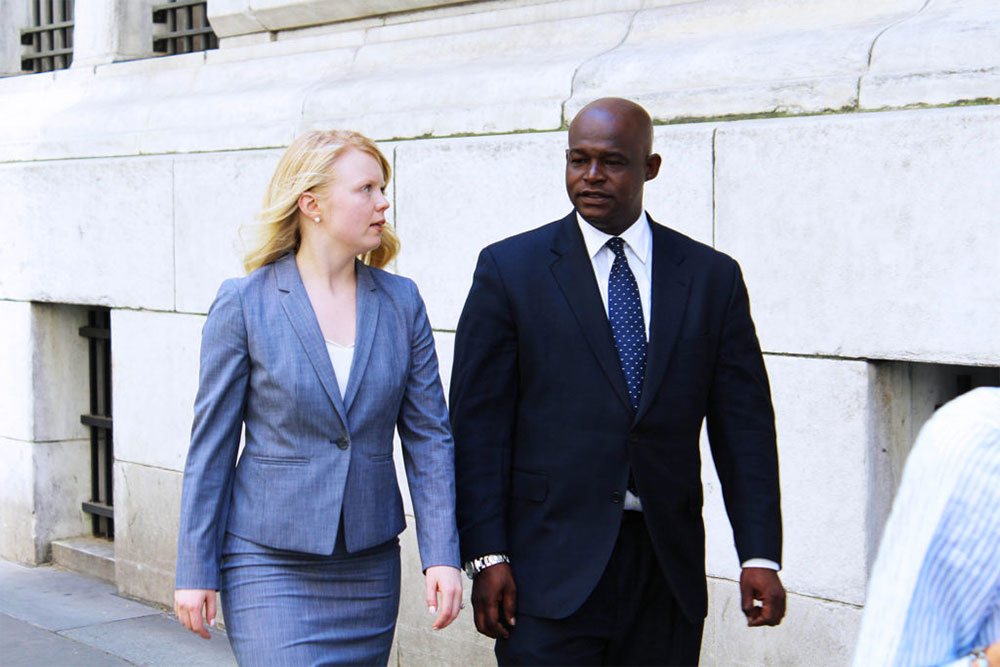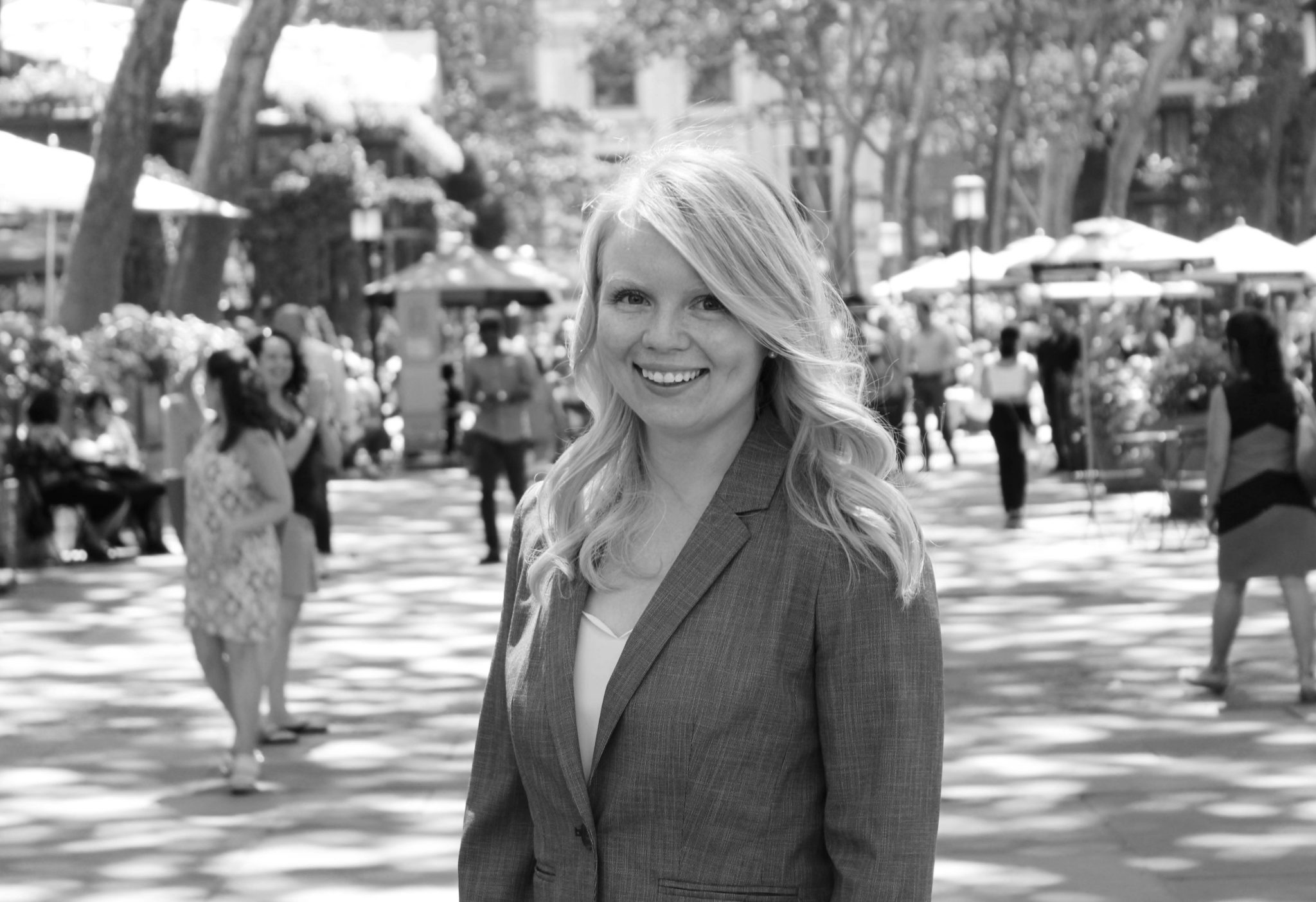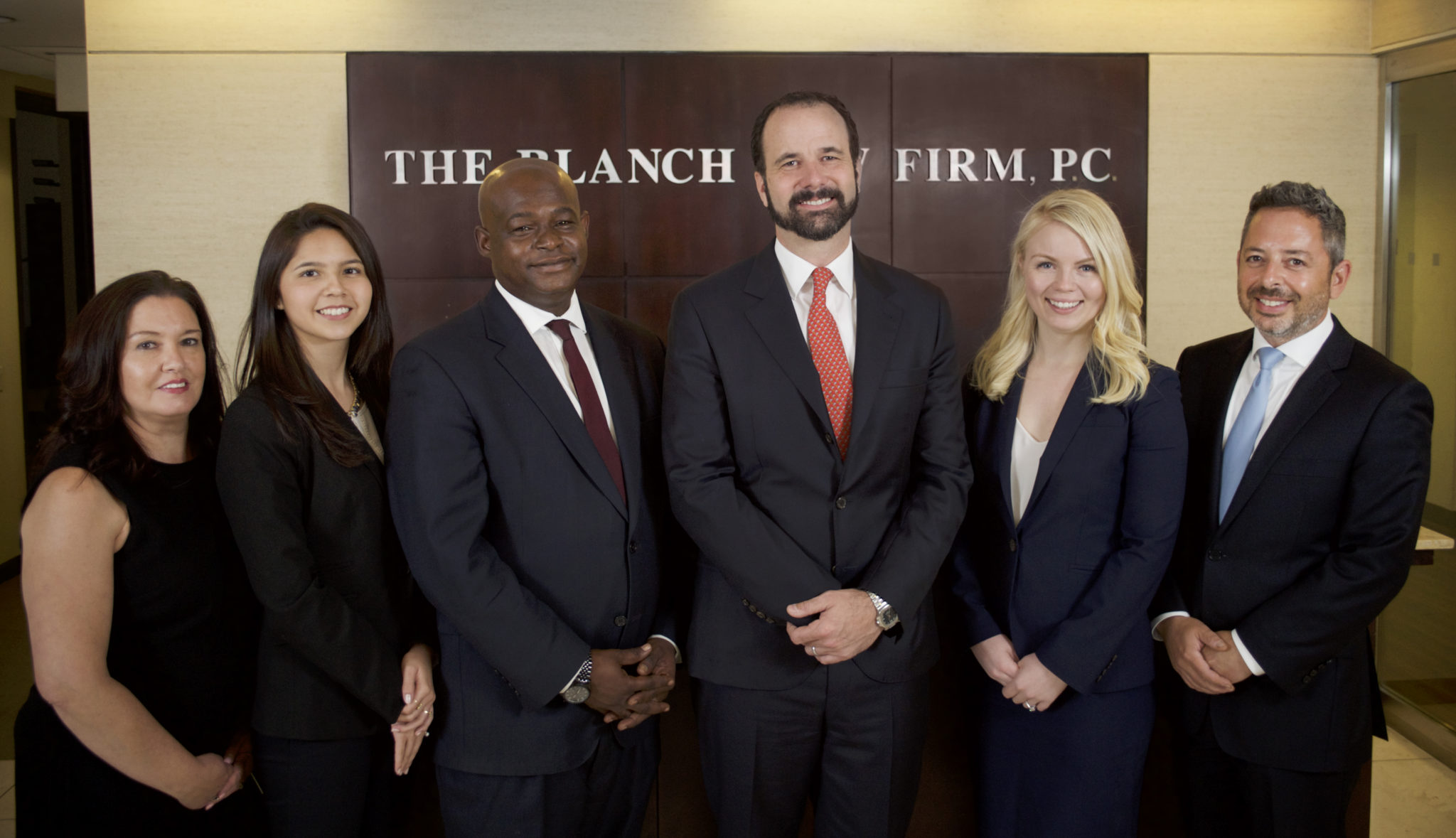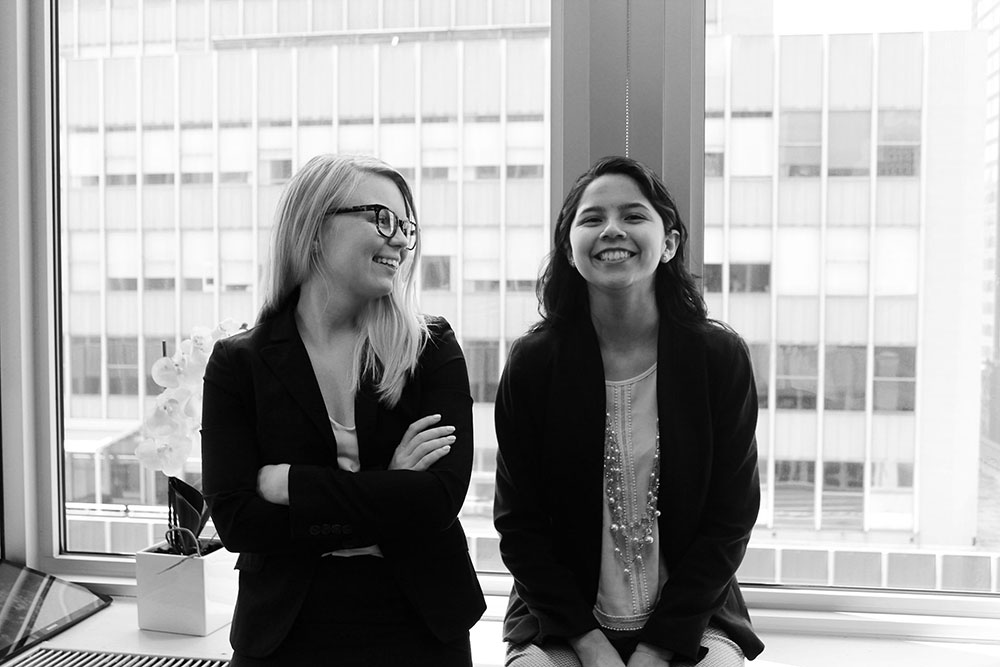We are talking with Elena Fast, a criminal defense attorney with The Blanch Law Firm.
How do you view your role in the criminal justice system as a criminal defense lawyer?
We make sure that people charged with a crime get the best defense possible. We don’t judge. We don’t determine guilt or their innocence. Our primary directive is to ensure that a client gets a fair trial. And that means that we go to the wall for our clients.
You can’t have a fair trial without a vigorous defense. The best criminal defense attorneys will go to the ends of the earth to take the government to task on their allegations. If they’re going to make them, they better be able to prove them. And luckily for us, the criminal court places a high standard on proof.
At the same time, we are conducting our own investigation of the facts to ensure that we understand the case better than the prosecutor does and, in some cases, better than our client. We need to be far and away the top experts in that courtroom. Juries and judges favor the expert.
“You pull out every creative magic trick in your bag for your client. Someone’s life is on the line. Criminal defense is war.”
As a former prosecutor, what is it like shifting over to criminal defense?
It was an adjustment at first, after having been a prosecutor for the past several years.
You get accustomed to dealing with cases and having a procedure in place, of how cases progress through their life cycles. There’s a lot of supervision when you’re a prosecutor. You always have a boss, and your boss always has a boss, and you always have someone dictating for you what the appropriate plea offer is.
Someone else other than you makes the determination as to which cases proceed to trial and which cases are resolved by means of a plea offer. Contrary to that, in private practice, as a defense lawyer, you have partners that you work hand-in-hand with on cases, but you don’t have anyone supervising you.
So it is your judgment and the judgment of your peers that dictate how a case proceeds. Ultimately, it is the client’s decision to take a plea or to go to trial, but there is no one else telling you that your assessment of the case is wrong. You and your defense team are the only ones with the sole responsibility of assessing the case and figuring its strengths and weaknesses.

What are the benefits of hiring a criminal attorney instead of using a public defender?
The benefit of hiring a private criminal defense attorney is that you do get more individualized attention. You don’t get shuffled among hundreds of attorneys that work for the public defender’s office or legal aid. You have someone in your corner that is accountable for your case.
You have more resources and more time going into the investigation and the preparation of your case either for success at trial or for potentially a more favorable disposition. Public defenders go to the same law schools and pass the same bar as private attorneys do. Unfortunately, they carry a much heavier caseload that could sometimes be in the hundreds of cases.
So instead of being one of a few cases that a private firm has, you are one of hundreds, if not thousands, within a public defender’s office. That may have its drawbacks where certain things may not be done properly due to the lack of time that a public defender has.
“. . . bring as much as information and documents as they have for the meeting with the attorney. The attorney is able to get a lot of the information on federal matters from Pacer . . .”
How would you describe your relationship with the prosecutors?
Prosecutors don’t always like us but they always respect us. They don’t like losing. There are certain prosecutors that we enjoy working with because we have a good relationship that are above board; that are open to hearing the arguments that we’re making about the weaknesses of a case.
Yet, there are other prosecutors that we have a contentious relationship with because a case we had in common went bad for the prosecutor. Oftentimes, we interact with the same prosecutors. We do try to do our best to form good relationship with them, but that may not necessarily be a possibility in every single case.
What should a client expect of their criminal defense attorney?
They should be expecting that someone goes to the ends of the earth within the confines of the law to ensure that they’ve fully investigated the case, explored the case’s weaknesses and in the event the case goes to trial, they are absolutely fearless and incredibly prepared.
Does law school prepare you for being a criminal defense attorney?
No. You do learn the building blocks of a criminal case and you generally know how it works. Law school doesn’t have a lot of court experience, so you miss out on that. It also takes years of practice before you feel comfortable sitting across from someone being charged with a serious matter and coming off as a calm and confident professional whose judgment they can trust.
Can you describe what the first consultation with an attorney is like for someone with a criminal charge
Typically, the client comes in, and sometimes they have their court paperwork with them, and the first question that we ask them is, “What happened?” The client tells a narrative of the events as to what they want to share with the attorney.
Sometimes, the client tells us everything including whether or not they’ve committed the crime. Other times, it’s just a version of the events that the client wants the attorney to hear. This is an introductory meeting, its sole purpose is for the client to figure out if this is an attorney they want to retain or if they are continuing the interview process for the criminal counsel.
Regardless of whether or not the attorney is retained past the initial consultation, the information that the individual gives to the attorney is protected under attorney-client privilege. So the client should feel free to speak to the attorney in confidence, even if the attorney-client relationship does not progress further.
“‘Innocent until proven guilty,” that phrase has a typo. It should be “Innocent unless proven guilty.” And we’re the “unless.’”
Can you discuss some examples where you think criminal defense lawyers face certain ethical quandaries?
Sometimes the client wants to do certain things, especially in a criminal context, that are against the law or the ethical confines of our profession. For example, if the client wants to testify falsely at trial, the defense attorney cannot question the client when the client gets up on the stand.
It has to be done in a narrative form. So the attorney has to ask the client what happened, and the client has to give a narrative. If the attorney knows the client is going to testify falsely in that situation, the attorney cannot go question by question with a client. Certainly, if the client’s perception of the case is that they can make witnesses disappear, or destroy evidence, the attorney is bound to discourage the client from engaging in that conduct. If the attorney reasonably believes that the client will engage in further criminal activity, that may need to be disclosed.
Are there certain types of cases that are easier to defend than others?
Yes, if it’s a case involving just one defendant, that’s a lot easier to defend than cases where there are multiple defendants, that have a lot more discovery or are more complex. Believe it or not, it takes a lot of time to synthesize the case, review discovery and develop a trial strategy.
“ . . . the best part is meeting our clients and getting to know them beyond the allegations of the case . . .”
How do you feel about the responsibility for other people’s cases?
It’s an immense responsibility. That is what keeps us so dedicated to the work that we do. Each of the criminal defense attorneys at our firm could be doing a thousand other things for a living, where they wouldn’t have the same impact on someone else’s life. The mistakes that attorneys make may result in very serious consequences, including the loss and deprivation of somebody’s freedom. So we do try to do our very best to ensure the best outcome for our clients’ cases.
How do you sleep at night knowing that you represent people charged with horrific crimes?
We sleep just fine. Everyone is entitled to a defense. Everyone is entitled to a fearless defense attorney that is going to hold the government to its burden of proof.

What do you think it takes to try to achieve the client’s goals as a criminal lawyer?
Lots of time dedicated to the case and lots of hard work. Usually, in the first few meetings that we have with a client, we discuss what their expectations are for the criminal matter. Then, we develop and execute an action plan to get our client to their goal.
Do you have any advice for clients on how they should prepare materials for their criminal defense lawyer?
The client should bring as much as information and documents as they have for the meeting with the attorney. The attorney is able to get a lot of the information on federal matters from Pacer, which is an online repository of documents. However, with state cases, the attorney has to physically go to court to get these documents, which is usually impossible to do prior to the first meeting.
What is the best way to be proactive in working with your lawyer to help defend yourself from criminal charges being levied against you?
You need to make sure, that you are in regular contact with the attorney, even if your court date is not for another few weeks. Court dates are typically between 4 to 8 weeks apart. You should have a clear understanding as to what your attorney is doing in between the court dates and what you expect to happen on the next court date. You never want to be in a situation that the criminal matter is out of sight, out of mind. We get the best results on cases where the client is engaged and actively participating.
“Prosecutors don’t always like us but they always respect us. They don’t like losing.”
Can you talk about some common myths that surround people’s notion of what a criminal defense lawyer does?
Portrayed in the media in shows like Better Call Saul, the criminal defense attorney is depicted as this slimy individual that breaks the law and helps the client commit and conceal crimes.
That is really the perception of what the criminal defense attorney does. We have all worked very hard to go to law school and then get admitted to the bar. Most, if not all criminal attorneys take our ethical rules very seriously. We don’t help our clients break the law. If anything, we discourage them from doing so, and we try to take corrective action where possible.
What is your typical day like? How do you plan for it?
A typical day here at The Blanch Law Firm starts at about 8 o’clock every morning. The attorneys all come in at different times of the day based on who has what on their calendar — who’s in court, who’s meeting with the government. On a day that there is no court, you try to come into the office as early as possible.
You plan out your day — what motions are due, what needs to be done and what client meetings need to be scheduled. Very often, your day does not go according to plan. You’ve signed up a new client, or a former client gets picked up by the police. This is a very reactive profession. You have to drop everything to go help someone you represent on moment’s notice.
Can clients really tell you anything, or are there some things you don’t want them to tell you?
We ask that the clients tell us as much as they feel comfortable sharing. I’d rather know something than not know it. The question that we get often times is, “Do you need to know if your client is guilty of the charges?” No, but it helps us with our assessment of the matter. We do like to know where the bodies are buried, so to say, so we are careful in how we prepare our defense and how we communicate with the Government.
Is there anything that a client might tell you that is not covered by attorney-client privilege?
Yes. If the client says something that indicates that there is a high probability of potential physical harm to another individual, or that there is an ongoing crime, we may have an ethical obligation to disclose that part of the attorney-client communication. That practically never happens.

What are some of the more common mistakes you see clients make in criminal cases?
Some clients don’t take their case seriously, that is probably the worst thing that you can do. Also, clients that make a statement to the investigators when they are arrested without first consulting an attorney may really hurt their case. By giving a statement to the police, you may eliminate some defenses. If your defense is contrary to the statement that you have made to law enforcement, your attorney can’t use it.
Mistakes that criminal defense lawyers make?
The most serious mistake, and probably the most detrimental one, is when the defense attorney is unable to dedicate enough time to the matter early on and investigate it properly. In a lot of cases, video surveillance is crucial in assessing the matter in determining the client’s guilt or innocence. If the video surveillance is not preserved or subpoenaed shortly after the arrest, it’s gone and it can never be brought back.
How is the decision to go to trial or accept a plea made? Who makes that decision?
The decision to go to trial or to plead on the case is solely the client’s decision. Our job as the attorney is to discuss the benefits and the detriments of going to trial or accepting a plea offer. It’s all up to the client. We’re just here to ensure that the client makes an educated decision about what they’d like to do with their case.
A lot of people out there seem to think that the goal in hiring a criminal lawyer is to find an attorney who is “connected” because they will use their connections to help get your criminal case dismissed. What are your thoughts on this?
I think this may be the case in small town jurisdictions where everyone knows everyone. In New York City, there are hundreds of judges and thousands of prosecutors. So it is virtually impossible to get to know everyone involved in criminal law. Does it help to have a good relationship with a prosecutor?
Yes, but you develop that relationship by being a fair adversary. You fight for your client like crazy. You pull out every creative magic trick in your bag for your client. Someone’s life is on the line. Criminal defense is war. But are not unethical or underhanded in how you obtain that result.
What do you consider to be a successful outcome on a case?
That depends on the type of case and what the client’s expectations are. We try to meet, if not exceed, the client’s expectations. In some cases, the win is getting a non-incarceratory resolution. In other cases, it’s making sure that the client does not have to register as a sex offender. In some other cases, it is making sure that the top charge is brought down significantly.
What is the worst part about your job?
I think the worst part of a criminal defense attorney’s job is the money aspect of it. Being an attorney is a business. Money is the most awkward part of any attorney-client relationship. We try to get out of the way early on, so that way, it doesn’t turn into the client having a balance and us not being able to continue on the case for financial reasons.
What is the best part about your job?
I think the best part is meeting our clients and getting to know them beyond the allegations of the case. I find that with every single client, I am able to look past the charges and get to know them as people. There are some really commendable qualities about each of our clients, which may not be easily gleaned from the charging document alone.
In some cases, you really get to admire someone for how they are with their families, even though they could be charged with a very serious and very violent crime. In other cases, you are in awe of your client’s enterprising ability. A few months back, we represented a client that taught himself, without any prior chemical training, how to made prescription medication.
His homemade xanax and adderall replicated the pills made by Big Pharma within 99.99%. I can’t do that, I failed out of Organic Chem in college.
Is being a criminal defense lawyer anything like they show on tv//Law & Order?
Yes, it’s a lot like Law & Order. Except, it takes a lot more work than just an hour to access a case, go through motion practice, start a trial and get a verdict. We also aren’t as good looking as the cast of Law & Order SVU.

Do you ever feel bad when your client gets acquitted? Do you ever get hate mail?
Are you kidding? I love it. “Innocent until proven guilty,” that phrase has a typo. It should be “Innocent unless proven guilty.” And we’re the “unless.” I never feel bad. I have absolutely no regrets about getting a good verdict on a case. We sometimes get letters, that aren’t exactly nice from victims or their families. It’s part of our job. You just have to roll with the punches.
What is the craziest thing you had to do for a case?
We had a client that was charged with a domestic assault on her spouse. They had a shared dog. The spouse communicated that she would no longer take care of the dog and didn’t care what would happen to it. Our client was in bind. Since there was an order of protection, she was unable to get the dog herself and couldn’t find anyone else that would be able to help out.
So I picked up the dog from the spouse (without any conversation about our client or the allegations, obviously) and chauffeured the dog to our client’s residence. This service is not enumerated in our retainer agreement, but we try to go the extra mile where necessary.
Do you like your clients? How do you represent people that are charged with doing really bad things?
I happen to like our clients quite a lot. I learn from them every single day. I don’t know a profession where you do get to know someone on such a personal level. Part of our job is to know our clients very well — Where are they with finishing up college? What is the status of their asylum case? Did their spouse threaten to tell false things to probation officer unless their allowance gets increased?
Armed with this knowledge, we are able to put our clients in the best position with the prosecutors come plea time. As a criminal defense attorney, you have to effectively advocate for your clients because they are deserving of leniency. I don’t think of the people I represent as bad people by any stretch of imagination. Rather, they are people who had a bad moment or made bad decisions.
How do you like being a criminal defense attorney?
I absolutely love it, and I can’t see myself doing anything else. Every day is exciting and different. You never know what will happen once you come into the office. You also can’t predict your weekends – sometimes in the middle of your Saturday, you get a call that one of your clients has been arrested and you need to come down to Court to arraign them.
The best thing about criminal defense is that you don’t do the same thing over and over again as you may do with real estate law or wills and estates. Part of being a criminal defense lawyer is understanding what the facts are on a micro-granular level. We recently had a case where client was charged with running a Ponzi scheme involving real estate investments.
In order to prepare for trial, we hired an expert to learn about how the commercial real estate market in New York works. Last year, we did a trial involving theft of money from a bridge toll. We spent hundreds of hours learning how toll-collection works. I now have an increased appreciation for toll collections.


Leave a Reply